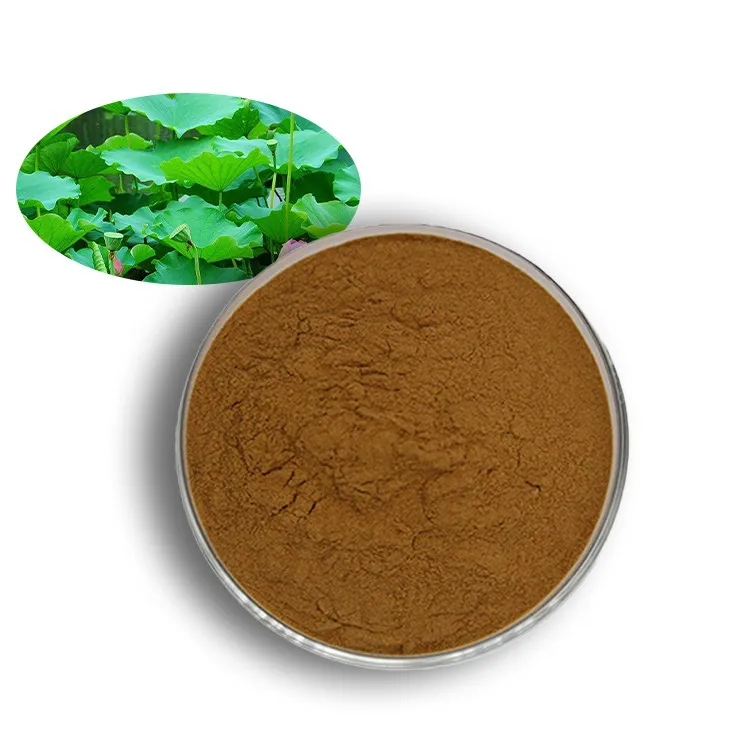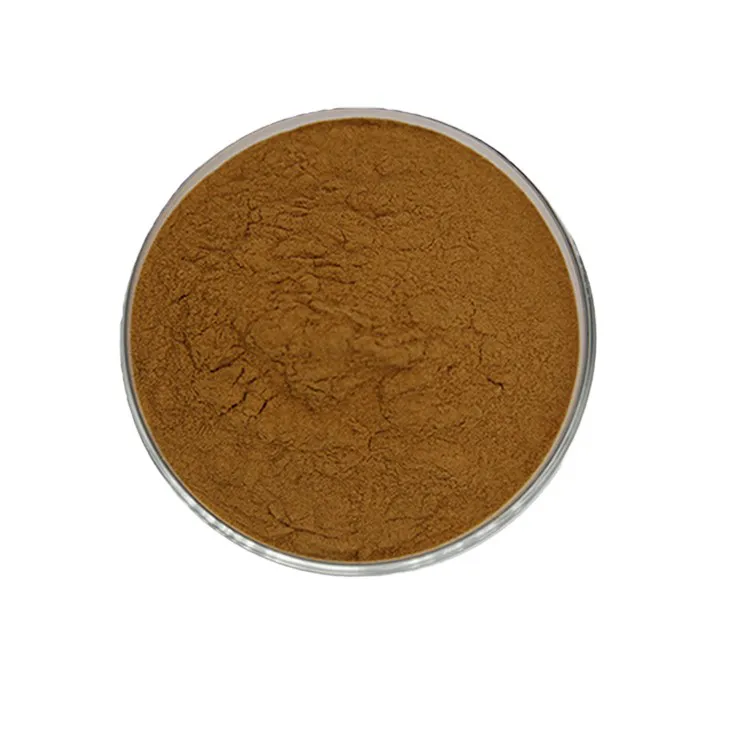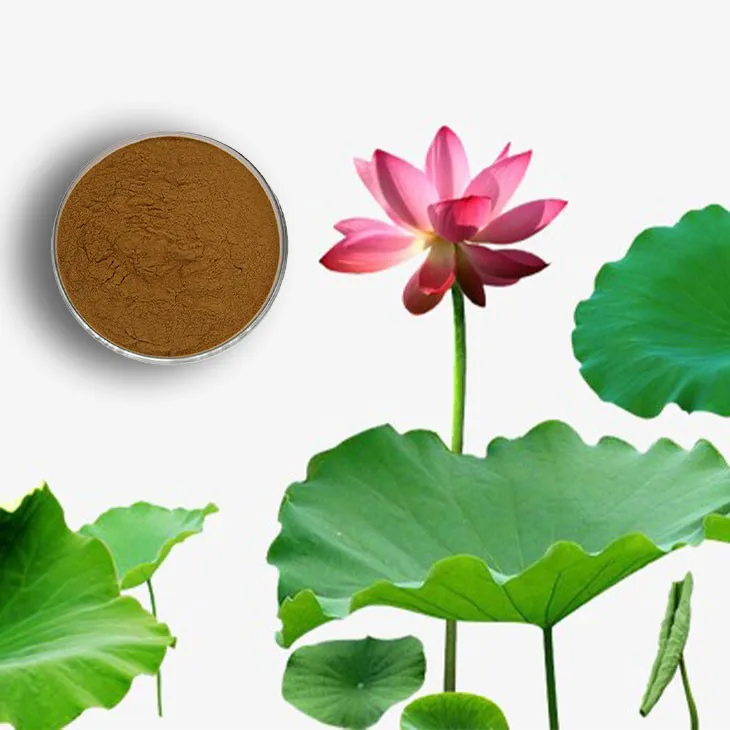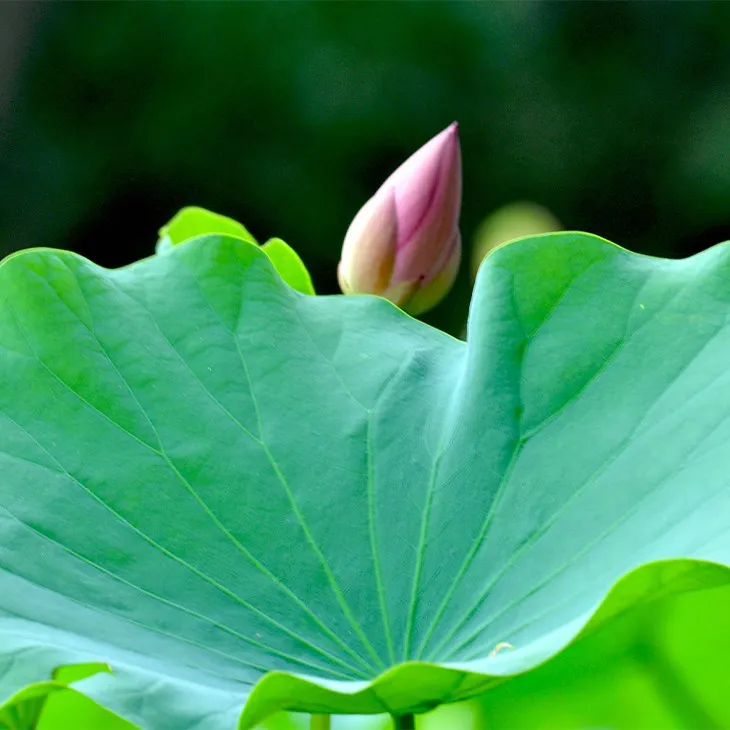- 0086-571-85302990
- sales@greenskybio.com
Lotus Leaf Extract: Benefits and Consumption Guide
2024-11-12

1. Introduction
The lotus plant has been highly regarded in various cultures for centuries, not only for its beauty but also for its potential medicinal properties. Lotus leaf extract, in particular, has emerged as a subject of great interest in the field of health and wellness. This extract is rich in a variety of bioactive compounds that offer a plethora of health benefits.

2. Bioactive Compounds in Lotus leaf extract
The Lotus leaf extract contains several important bioactive compounds:
- Flavonoids: These are a group of polyphenolic compounds that are known for their antioxidant, anti - inflammatory, and anti - microbial properties. In the lotus leaf, flavonoids play a significant role in protecting the plant from environmental stressors, and when consumed as part of the extract, they can offer similar benefits to the human body.
- Alkaloids: Alkaloids present in the lotus leaf extract may contribute to its pharmacological effects. Some alkaloids have been shown to have effects on the central nervous system, potentially influencing mood and stress levels.
- Tannins: Tannins are known for their astringent properties. In the context of lotus leaf extract, they may help with digestion by reducing inflammation in the digestive tract and promoting the absorption of nutrients.

3. Health Benefits of Lotus Leaf Extract
3.1 Weight Management
One of the most well - known benefits of lotus leaf extract is its potential role in weight management.
- Appetite Suppression: Some studies suggest that compounds in the lotus leaf extract may interact with the body's hormonal system to reduce feelings of hunger. This can be particularly helpful for those who are trying to control their calorie intake as part of a weight loss plan.
- Fat Metabolism Enhancement: The extract may also enhance the body's ability to metabolize fat. It can stimulate certain enzymes involved in the breakdown of fats, leading to increased fat burning. This can contribute to a reduction in body fat percentage over time.
3.2 Antioxidant Properties
The presence of flavonoids and other antioxidant compounds in lotus leaf extract gives it strong antioxidant properties.
- Free Radical Scavenging: Free radicals are unstable molecules that can cause damage to cells, leading to various health problems such as aging, cancer, and heart disease. The antioxidants in lotus leaf extract can neutralize these free radicals, protecting the body's cells from oxidative damage.
- Anti - Aging Effects: By reducing oxidative stress, lotus leaf extract may also have anti - aging effects. It can help maintain the integrity of skin cells, reducing the appearance of wrinkles and promoting a more youthful complexion.
3.3 Digestive Health
Tannins and other compounds in lotus leaf extract can have a positive impact on digestive health.
- Reduction of Inflammation: As mentioned earlier, tannins can reduce inflammation in the digestive tract. This can be beneficial for those with conditions such as gastritis or irritable bowel syndrome (IBS).
- Improved Nutrient Absorption: By promoting a healthy digestive environment, the extract can also enhance the absorption of nutrients from food. This ensures that the body gets the maximum benefit from the diet.
3.4 Blood Sugar Regulation
There is some evidence to suggest that lotus leaf extract may play a role in blood sugar regulation.
- Insulin Sensitivity: It may improve insulin sensitivity, allowing cells to better respond to insulin and regulate blood sugar levels more effectively. This can be beneficial for individuals with type 2 diabetes or those at risk of developing diabetes.
- Glucose Metabolism: The extract may also influence glucose metabolism in the body, helping to keep blood sugar levels within a normal range.

4. Consumption Guide for Lotus Leaf Extract
4.1 Forms of Lotus Leaf Extract
Lotus leaf extract is available in several forms:
- Capsules: This is one of the most convenient forms of consumption. Capsules usually contain a standardized amount of lotus leaf extract, making it easy to control the dosage. They are also portable and can be taken with a glass of water.
- Tea: Lotus leaf tea is a popular form. It can be made by steeping dried lotus leaves in hot water. The tea has a mild, earthy flavor and can be consumed on its own or with a bit of honey or lemon for added taste.
- Tinctures: Tinctures are alcohol - based extracts. They are often more concentrated than other forms and are typically taken by adding a few drops to a glass of water or under the tongue. However, tinctures may not be suitable for everyone, especially those who avoid alcohol.
4.2 Dosage Recommendations
The appropriate dosage of lotus leaf extract can vary depending on several factors, including age, health status, and the form of the extract.
- For Capsules: A typical dosage for adults may range from 500 - 1000 mg per day, divided into one or two doses. However, it is always best to consult a healthcare provider before starting any new supplement regimen.
- For Tea: If consuming lotus leaf tea, 1 - 2 cups per day is a common recommendation. Each cup can be made with about 1 - 2 grams of dried lotus leaves.
- For Tinctures: Due to their higher concentration, the dosage for tinctures is usually much lower. A few drops (usually 5 - 10 drops) per day may be sufficient, but again, medical advice should be sought.
4.3 Precautions and Side Effects
While lotus leaf extract is generally considered safe for most people when consumed in moderation, there are some precautions to keep in mind:
- Allergic Reactions: Some individuals may be allergic to lotus or components in the extract. Symptoms of an allergic reaction may include skin rashes, itching, swelling, or difficulty breathing. If any of these symptoms occur after consuming lotus leaf extract, discontinue use immediately and seek medical attention.
- Interaction with Medications: Lotus leaf extract may interact with certain medications. For example, it may enhance the effects of blood - thinning medications or interact with drugs that affect blood sugar levels. Therefore, if you are taking any medications, it is crucial to inform your healthcare provider before using lotus leaf extract.
- Digestive Upset: In some cases, high doses of lotus leaf extract may cause digestive upset, such as nausea, vomiting, or diarrhea. To avoid this, start with a low dose and gradually increase it if necessary, while also paying attention to any adverse reactions.

5. Conclusion
Lotus leaf extract offers a range of potential health benefits, from weight management to antioxidant protection and improved digestive and blood sugar regulation. However, it is important to consume it properly and be aware of any potential risks or interactions. By following the consumption guide and consulting with a healthcare provider when necessary, individuals can potentially enjoy the benefits of this natural extract in a safe and effective manner.
FAQ:
What are the main bioactive compounds in lotus leaf extract?
Lotus leaf extract contains compounds such as alkaloids, flavonoids, and polysaccharides. These bioactive compounds contribute to its various health - promoting properties.
How does lotus leaf extract aid in weight management?
It may suppress appetite, making you feel less hungry and thus reducing food intake. Additionally, it can enhance fat metabolism, which helps the body break down and utilize stored fat more efficiently.
Can lotus leaf extract really combat free radicals?
Yes, due to its antioxidant properties. The antioxidant compounds in lotus leaf extract can neutralize free radicals, which are unstable molecules that can cause damage to cells and contribute to various health problems.
What is the proper way to consume lotus leaf extract?
The consumption method can vary. It can be taken as a dietary supplement in capsule or powder form. However, it's important to follow the recommended dosage instructions on the product label. Some people may also make lotus leaf tea by steeping dried lotus leaves in hot water, but again, moderation is key.
Are there any side effects of consuming lotus leaf extract?
While generally considered safe for most people when consumed in moderation, some individuals may experience side effects such as digestive discomfort, including nausea or diarrhea. Pregnant or breastfeeding women should consult a healthcare provider before consuming lotus leaf extract as its safety in these situations is not fully established.
Related literature
- The Bioactive Compounds and Health Benefits of Lotus Leaves"
- "Lotus Leaf Extract: A Promising Natural Agent for Weight Management"
- "Antioxidant Activity of Lotus Leaf Extract: A Review"
- ▶ Hesperidin
- ▶ citrus bioflavonoids
- ▶ plant extract
- ▶ lycopene
- ▶ Diosmin
- ▶ Grape seed extract
- ▶ Sea buckthorn Juice Powder
- ▶ Beetroot powder
- ▶ Hops Extract
- ▶ Artichoke Extract
- ▶ Reishi mushroom extract
- ▶ Astaxanthin
- ▶ Green Tea Extract
- ▶ Curcumin Extract
- ▶ Horse Chestnut Extract
- ▶ Other Problems
- ▶ Boswellia Serrata Extract
- ▶ Resveratrol Extract
- ▶ Marigold Extract
- ▶ Grape Leaf Extract
- ▶ blog3
- ▶ blog4
- ▶ blog5
-
Organic Tongkat Ali extract powder factory.
2024-11-12
-
How to make powder with ashwagandha extract.
2024-11-12
-
Rosehip extract manufacturers from China.
2024-11-12
-
The best cat's claw extract in nature.
2024-11-12
-
Chinese Dandelion Leaf Extract Suppliers.
2024-11-12
-
Feverfew Extract
2024-11-12
-
Almond Extract Powder
2024-11-12
-
Echinacea Extract
2024-11-12
-
Kelp Extract Powder
2024-11-12
-
Saponin Extract
2024-11-12
-
Citrus Aurantii Extract
2024-11-12
-
Beta Carotene
2024-11-12
-
Apricot Powder
2024-11-12
-
Alfalfa Meal
2024-11-12
-
Chia Seed Powder
2024-11-12





















